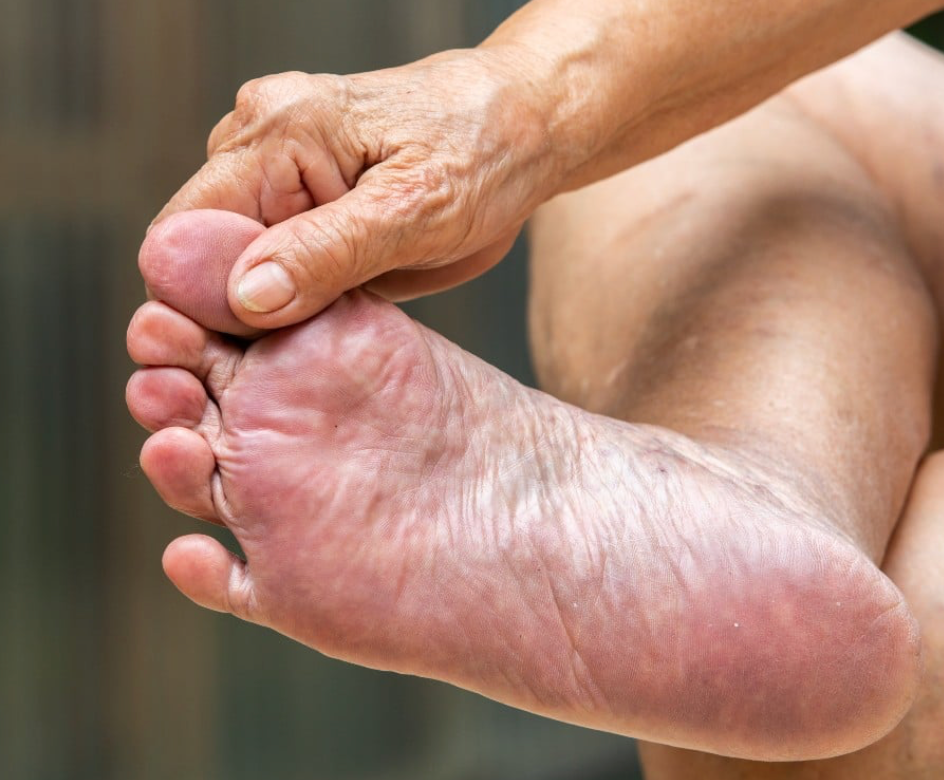Guarding Foot Health: The Impact of Diabetes on Men’s and Women’s Feet
Diabetes casts a significant impact on foot health, with serious complications that demand attention. The American College of Foot and Ankle Surgeons (ACFAS) emphasizes the importance of daily foot inspection for early problem detection, a crucial step in preventing severe consequences. Neglecting foot care with diabetes can lead to catastrophic results, even amputation. Discover the types of foot conditions associated with diabetes, empowering you to recognize issues promptly and decrease the potential for permanent damage.
Diabetic Neuropathy: Diabetic neuropathy affects approximately 50% of people with diabetes, causing nerve damage that results in a loss of feeling in the foot. This lack of sensation increases the risk of injuries going unnoticed, leading to potential infections. Symptoms may include pain, tingling, weakness, and even changes in foot shape, known as Charcot foot. Recognizing these signs is crucial for proactive management.
Diabetic Foot Ulcer: About 15% of individuals with diabetes experience Diabetic Foot Ulcer, open wounds usually forming on the sole. Alarmingly, 6% of those with foot ulcers face hospitalization due to infections, and amputation rates range from 14-24%. Diabetic neuropathy can hinder the immediate recognition of foot ulcers, making regular foot checks and immediate medical attention vital to reduce infection risk and prevent amputation.
Poor Circulation: Diabetes-related poor circulation and peripheral artery disease (PAD) contribute to narrowed and clogged arteries, posing severe risks. Discolored toes, unexplained hair loss, excessively cold feet, and numbness are signs of compromised blood flow. Healthy circulation is crucial for wound healing, making the management of blood glucose levels essential to combat untreatable ulcers and infections.
Skin Damage: Diabetes induces conditions affecting the skin on your feet due to damaged nerves that lose their ability to produce oil and moisture. This can lead to bumps, blisters, and bruises prone to infection. Callus formation is also common, and without proper care, they can evolve into ulcers and infections. Regular foot inspections, moisturization, and callus management are vital components of foot care for individuals with diabetes.
Understanding the profound impact of diabetes on foot health empowers individuals to take proactive measures. At DiabeticShoes, we prioritize your well-being with a curated selection of supportive and comfortable footwear designed for both Men’s and Women’s unique needs. Explore our range and prioritize your foot health with every step.








